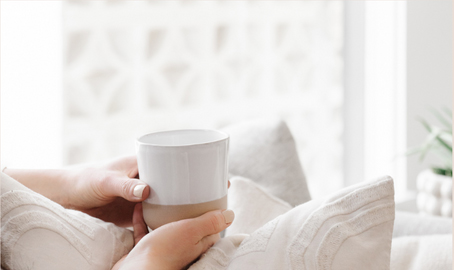SLEEP
Are you sleeping well?

Around 1 out of 3 of my clients do not sleep well enough.
Do you?
There’s a good chance that even if you think you are not in that group, you are.
You can’t even think of detoxing or hormone regulation or digestive system improvement if you are under-slept ????. Sleep needs to be one of your top priorities if you want to live a long and healthy life. Promise me you’ll read through this. I’m going to make it more than worth it by giving you exact steps to take so you’ll know exactly what to do.
For many people, sleep can seem like an annoyance without a clear purpose. Far from being a waste of time, sleep impacts every aspect of your health. It affects everything from mood, creativity and brain detoxification to DNA expression, chronic disease risk, including dementia and longevity.
You care about these things, right?
When thinking about quality sleep, it’s not just the number of hours that matter, but also the timing. Remember the circadian rhythm I talk about often? This is your body’s biological clock, which regulates just about everything in your body.
Disturb this rhythm and the result is a cascade through your system: higher blood pressure, upset hunger hormones and blood sugar, increased expression of genes associated with inflammation, immune excitability, diabetes, cancer risk and stress and much more.
Taking into account more than 300 scientific studies, a panel of experts came up with the following recommendations. Bear in mind that for adults sleep requirements are highly individual and can change from one day to the next, depending on factors like stress, physical exertion, illness and pregnancy, just to name a few. That said – these are solid guidelines.
As a general rule, aim for 8 hours of sleep every night. Anything under seven starts to impact your health. As you can see, for children, sleep is even more important. This is because it is so crucial for their development.
A lot of us think we can “catch up” on our sleep. Unfortunately this is just one of the many misconceptions out there. Lost sleep is lost forever. This doesn’t need to be dire, if your sleep is normally good. It’s that persistent lack of sleep has a cumulative effect when it comes to disrupting your health.
Here are just some health effects linked to poor or insufficient sleep:
???? Weakened immune function
???? Increased risk of obesity and type 2 diabetes
???? Increased risk of high blood pressure, heart attacks and cardiovascular disease
???? Increased risk of cancer — tumors grow two to three times faster in laboratory animals with severe sleep dysfunctions.
???? Impared memory and ability to learn and concentrate
???? Reduced ability to perform tasks, resulting in reduced productivity at work and poor grades in school.
???? Increased risk of neurological problems, ranging from depression to dementia and Alzheimer’s disease
???? Increased risk of pain and pain-related conditions such as fibromyalgia
???? Increased susceptibility to stomach ulcers
???? Impaired sexual function !
???? Increased risk of depression and anxiety (including post-traumatic stress disorder), schizophrenia and suicide
???? Premature ageing
???? Increased risk of mortality from any cause
Good news: there are many things you can do and techniques you can apply or learn to restore your sleep health. ????
1️⃣ By far, the very first thing you need to know is that your liver is SO involved in the quality of your sleep. If you generally wake up between 1-4 am, this is a sign that your liver is screaming at you to help and detox it.
2️⃣ Light is the second most important factor. You need to get enough light during the day. Most of us don’t, as we spend all day indoors. Aim to get 10 minutes of outside light within 2 hours of waking. And, make sure you sleep in a completely dark room.
Remember, melatonin production is triggered by the pineal gland, which in turn is triggered by getting outside light and darkness at the right times! (Turn off those screens 1 hour before bed!)
3️⃣ Temperature of your body and the room you sleep in is definitely the number 3 most important factor. You need to find the right one for you. 16-20° C is generally a good target for most people.
4️⃣ Electromagnetic fields in your bedroom emitted by your electrical alarm clocks, plugged in phones, TV, computers etc.. are not only affecting your sleep, but have a huge impact on your health. Unfortunately, most of us disregard these because they are not “visible” to us. Take those out of your room.
5️⃣ Timing. You really want to set up a “rhythm” of going to bed and waking up. Our bodies LOVE rhythms. The best timeframe for the vast majority of the population is bedtime between 10 and 11 pm, and alarm set between 6 and 7am.
7️⃣ Digestion needs to be all done before you go to bed. Otherwise, instead of the important sleep-time repairing and restoring that should go on, you’ll be digesting. Ideally, finish eating a vegetarian meal 2 to 3 hours before bed. If you are eating animal proteins, you need more like 3 to 4 hours. Red meat can take up to 8 hours! Best to limit how often you have that for dinner.
Here are a few supplements you can take if you want help.
???? If your mind is racing around with thoughts keeping you from sleeping then Ashwagandha (1-2 capsules) is your best bet!
????To help you relax before bed : magnesium (minimum 400mg). Ideally you’ll combine the two of them.
????And, if the quality of your sleep is poor, then melatonin may help. You can take 3-5g of melatonin (remember, this is also a major antioxidant! And has numerous benefits for your health)
???? Or, you can take 5-HTP or Griffonia seeds to help your body produce melatonin.
Love, light and deep sleep✨
Dejana

Then, follow “Dejana Naturally” to read more in my social media posts!
If you like what you read and you think it could help people in your life, please share this post with them on social media or forward an email.
Leave a comment below and I will respond, I promise! I’m so interested to hear your thoughts.


0 Comments